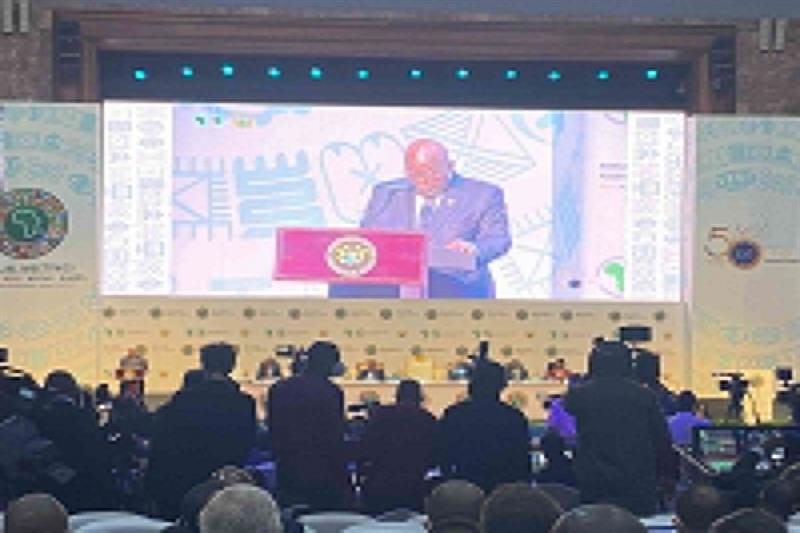
President of the Republic of Ghana NANA AKUFO-ADDO
Addo made his statements during his speech at the opening ceremony of the African Development Bank (AfDB) annual meeting that is being held in Accra, the capital of Ghana, over five days.
Addo identified five priorities the continent needs to deal with amid severe ongoing global challenges, which include working towards a debt action plan, collaborating and working with the World Bank and the International Monetary Fund (IMF) on the Debt Service Suspension Initiative and the G20 Common Framework, exploring options for the strategic use of the Special Drawing Rights (SDR) to support Africa through the AfDB, working with the International Fund for Agricultural Development (IFAD) and other global institutions to promote the establishment of a food security facility, and promoting the African Financial Stability Mechanism for greater financial market stability for Africa.
“Since February, prices of staple food commodities have surged drastically. Africa faces a fertiliser shortage of some two million metric tons in 2022, estimated at $2 billion, according to the IFAD, potentially creating a productivity deficit of 20 percent to 50 percent in agriculture. Rising food prices disproportionately affect African families, as food consumes some 40 percent of household income, compared to less than 20 percent in advanced economies,” Addo explained.
Regarding the continent’s debt issue, Ghana’s president said that Africa’s debt to GDP ratio rose an estimated 71.1 percent between 2019 and 2020, up from 60 percent prior to that, mainly as a result of the COVID-19 pandemic.
“In these trying times, the IMF’s $650 billion Special Drawing Rights (SDR), approved in August 2021, was meant to be of significant relief. However, based on the allocation principles, the African economies got $33 billion, which is about five percent. Moreover, the promise to reallocate some $100 billion of the SDR allocations to our economies, which was agreed to at the Paris Summit in 2019, has so far yielded about $36 billion in pledges as of April 2022. The strategic decision to make the AfDB the delivery vehicle for these SDRs must be pursued and achieved. Leveraging the SDRs (four times as AfDB does) will significantly boost resources for Africa’s transformation,” according to Addo.
As the AfDB’s 2022 meeting’s key theme is “Achieving Climate Resilience and a Just Energy Transition for Africa,” AfDB President Akinwumi A. Adesina noted that Africa is disproportionately affected by the negative impacts of climate change, including rising frequency and intensity of droughts, cyclones, floods and desertification.
“Climate change is shortchanging African economies. Africa suffers $7 billion up to $15 billion in losses annually due to climate change, which are projected to rise to $40 billion per year by 2030,” he explained.
It is worth noting that AfDB has recently doubled its financing for climate to $25 billion by 2025 that are being directed to the African countries, with the share of its climate finance dedicated to adaptation represents 67 percent, the highest among all multilateral development banks globally.
Short link: